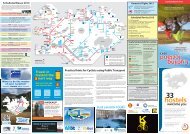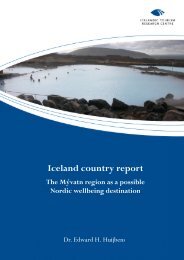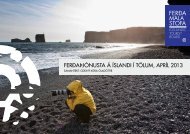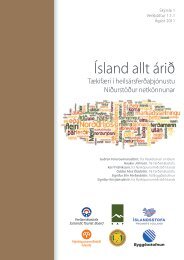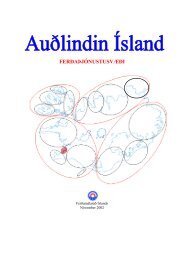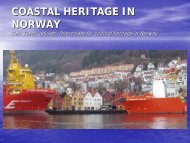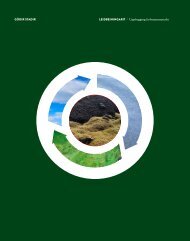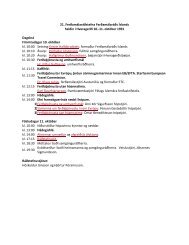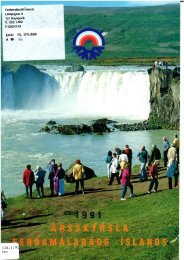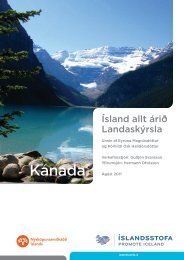Untitled
Untitled
Untitled
Create successful ePaper yourself
Turn your PDF publications into a flip-book with our unique Google optimized e-Paper software.
“voluntary compensation is still far from firmly rooted in the tourism<br />
industry and amongst tourists” (Gössling et al. 2007, p. 241).<br />
In sum it is clear that the future of sustainable tourism “hinges on<br />
action from all stakeholders” (Williams and Ponsford 2009, p. 403) and<br />
there has been:<br />
a general rise throughout the world of public awareness around climate<br />
change and a growth in the number of people monitoring their carbon<br />
emissions, their ´carbon footprint`. This is likely to have some effect in<br />
inducing some people to modify their long-distance travel and leisure<br />
patterns. This could result in the rich north in some growth in domestic<br />
tourism as people are encouraged to spend their leisure time closer at<br />
home. Exotic travel may in certain social groups be increasingly seen as<br />
extravagant, wasteful and ethically inappropriate. There may come to be<br />
a shift towards the notion that a ´good tourist´ is one who flies<br />
infrequently, who travels less and who tries to seek out ´local` rather<br />
than necessarily distant destinations. Some indication of this potential<br />
shift in values is given by over 1 million hits on Google for ethical<br />
tourism`. However, within much of the world long-haul leisure travel<br />
will probably increase. This is especially so where there is a growing<br />
middle class that has previously not been able to travel to places around<br />
the world (Dennis and Urry 2009, p. 9)<br />
With the above threefold story combining a specific socio-cultural<br />
and environmental narrative, tourism has emerged as fundamentally<br />
geographical. Does it make a difference if we were to more explicitly<br />
acknowledge tourism, empirically and theoretically, as something that<br />
occurs on the Earth rather than in the social world? This we will return to<br />
in our final chapter.<br />
Summing up<br />
During the last decades there have been many changes in theorizations of<br />
the social world that we believe tourism theory needs to consider and<br />
address. In this chapter we have questioned tourism as a domain of<br />
separate spaces existing somehow apart from the rest of social life. Instead,<br />
we have demonstrated how tourism is intrinsically related to something<br />
else: technology, climate change, vacation, family and friends, policy<br />
making, culture, technology, leisure, history, society, (post)modernity,<br />
heritage, mobility, nature, travel, sustainability, everyday life, neo-<br />
82



